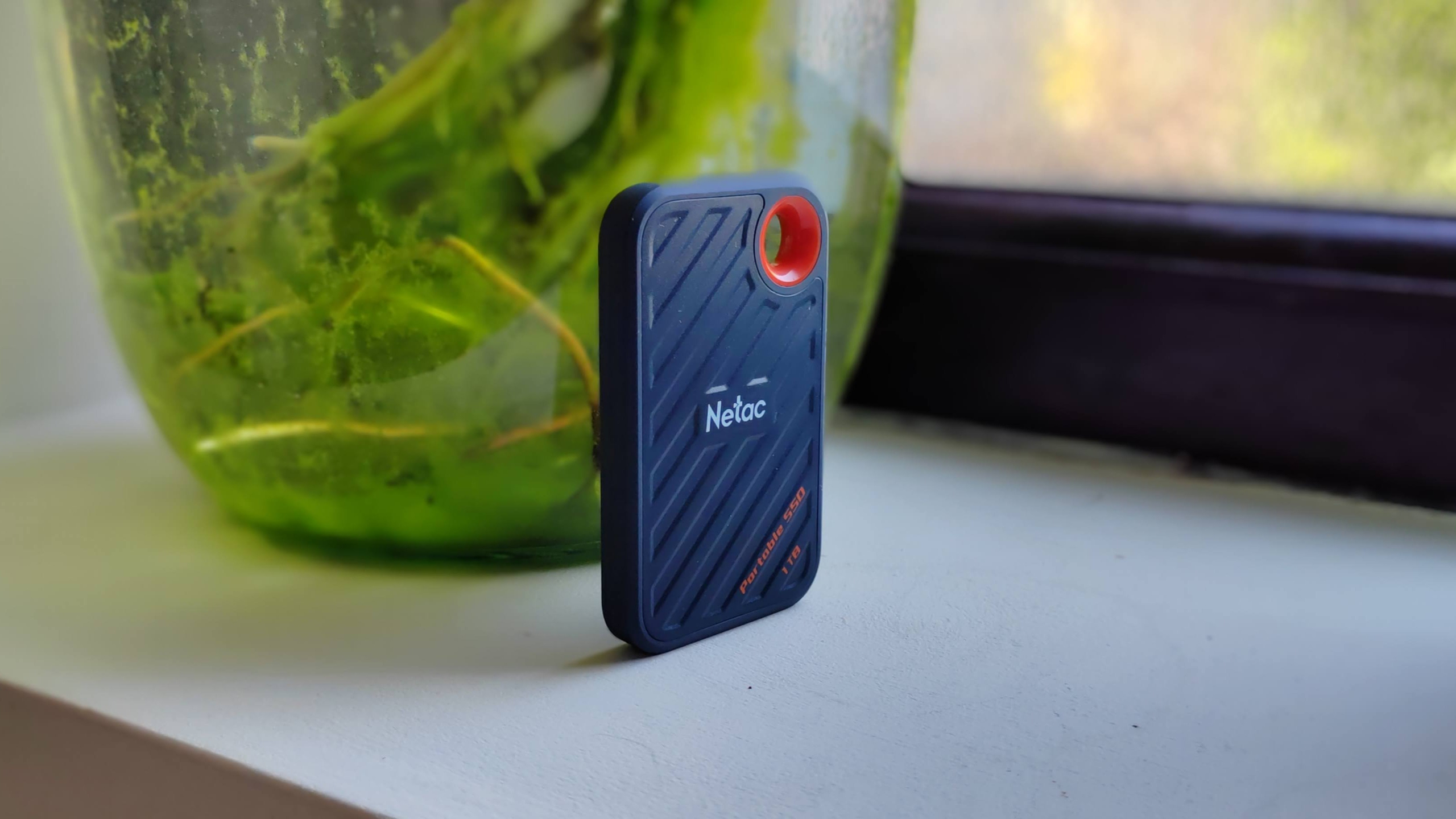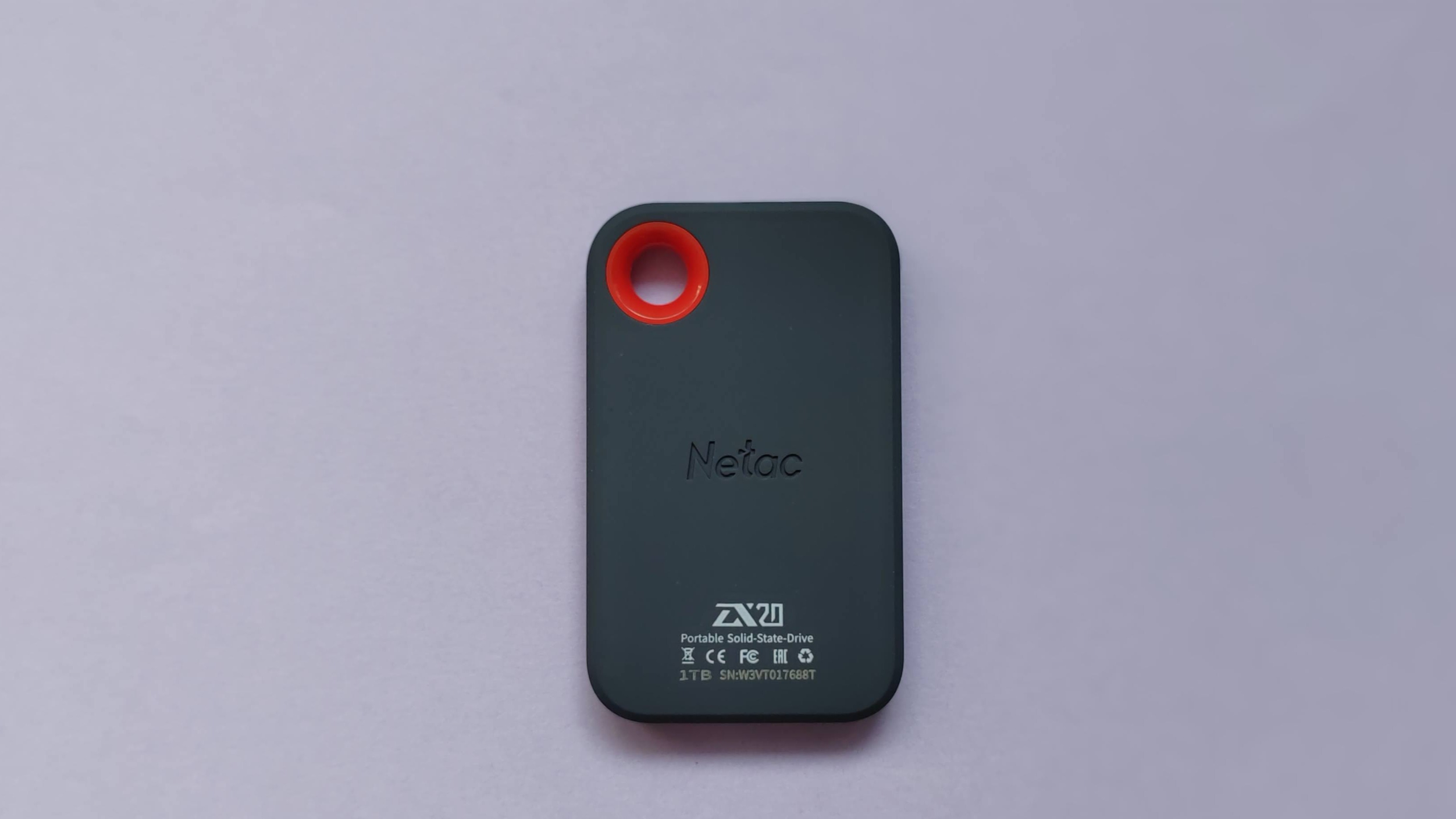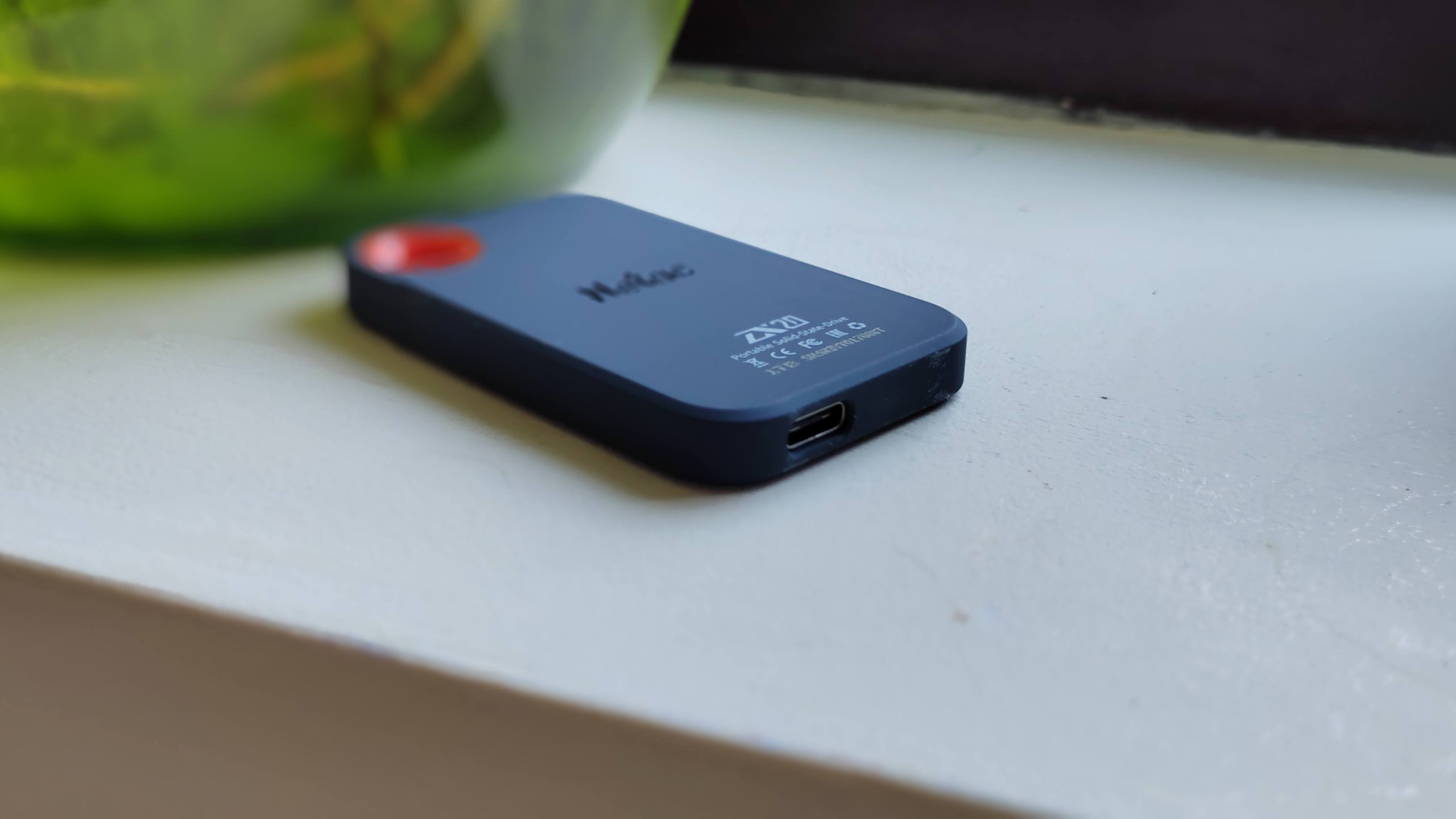
One-minute review
The Netac ZX20 is a portable solid state drive that is lightweight, fast, compact, reasonably solid and borrowed that orange carabiner hole from a popular rival: a useful feature to have for anyone who wants to secure their most precious data storage device.
Its (engineered) plastic casing makes it feel tacky but that’s preferable - in my view - to a full metal enclosure that scratches easily, is heavier and adds to the overall cost. The ZX20 comes with the strict minimum when it comes to accessories: just a couple of USB cables and a pouch and there is no bundled software. There’s no activity LED as well but that doesn’t bother me; what irks me more is the fact that it is only available in 512GB and 1TB capacities, rather small by today’s standards.
Just bear in mind that it doesn’t carry any IP or MIL-STD ratings; so don’t drop it in a glass of water to impress your coworkers, it is not a water resistant device. It still feels reasonably solid but be aware of its limitations (even if it includes a three-year warranty).
Netac claims that the drive should reach read/write speeds of up to 2GBps/1.7GBps thanks to its USB 3.2 Gen 2x2 interface. I never managed to match that because my laptop only supports USB 3.2 Gen 2, something to bear in mind if ever you want to buy with speed in mind. The drive was still plenty fast for everyday usage.
Even then, it is difficult to recommend the ZX20 given the plethora of alternatives, especially if you don’t have a laptop or desktop PC with USB 3.2 Gen 2x2. I’d recommend the Kingston XS2000 (which is cheaper, has a longer warranty and is waterproof) or the bargain basement Silicon Power PC60 if you don’t have a Gen 2x2 device. Note that I check prices on Amazon.com rather than relying on old and obsolete suggested retail prices.

Netac ZX20: Pricing and availability
- How much does it cost? $85.35 / £64.49 / AU$174.58
- When is it available? Now
- Where can you get it? In the US, UK, and Australia
In a fiercely competitive category, the ZX20 faces some tough competition; with little to differentiate between the products, it’s very often down to price and at the time of writing, that’s a game that the ZX20 is losing and one that ultimately prevents it from entering our best portable SSD buying guide.
Netac ZX20: Benchmark
You need a Gen 2x2 laptop or desktop computer to experience the full performance that the ZX20 promises to deliver: that’s a theoretical maximum of 20Gbps (2.5GBps). Netac says it will reach 2GBps/1.7GBps in real life but sadly I didn’t achieve those speeds because my test laptop has a USB 3.2 Gen 2, topping at 10Gbps.
A laptop with USB 4 or Thunderbolt 4 (like the Apple MacBook Pro) will only achieve these speeds as well which clearly shows that Gen 2x2 doesn’t have a future. Neither Samsung nor Crucial, two of the bigger portable SSD vendors out there, have released USB 3.2 Gen 2x2 products.
That aside, the ZX20 achieved some great results that put it firmly in the top five external solid state drives I have tested to date. The drive didn’t warm up even under load.
Should I buy the Netac ZX20

Buy it if...
Don't buy it if...
Netac ZX20 alternatives
The PNY Elite X Pro looks a lot like the popular Samsung T7 (and the ZX20) but is smaller, cheaper and with a USB 3.2 Gen 2x2 interface.
The Silicon Power PC60 is bland, unassuming and average in everything except its price. It is an entry-level, affordable and capable device that is far, far cheaper than the competition.
The Kingston XS2000 portable SSD is a better alternative to the ZX20 with a cheaper price tag, a longer warranty and an IP rating.
How I tested the Netac ZX20
After having formatted the ZX20 to exFAT, I test it the same way I test other storage components (external HDD, microSD cards etc). I use the latest versions of CrystalDiskMark, Atto, AS SSD and AJA benchmarks, noting the best scores achieved in each. They are all free and can be downloaded by anyone. I then transfer a folder of files, roughly 10GB in size, to get a rough idea of real life performance.







